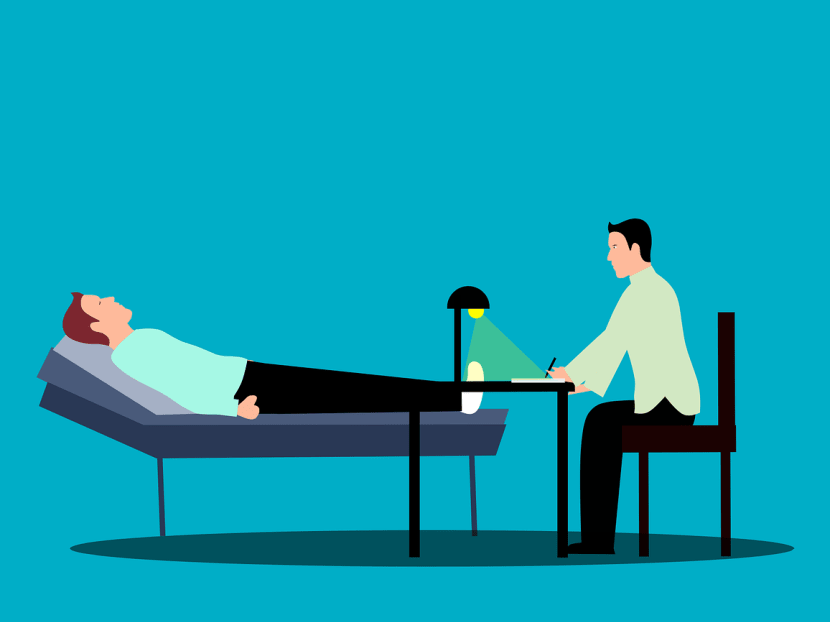Battling an unseen enemy in mental health
“Please grandson, choose something else, ANYTHING else.”

The author says that people have yet to accept that depression and anxiety are, based on science, real illnesses.
“Please grandson, choose something else, ANYTHING else.”
These were the words of my late grandmother (bless her soul) over the phone to me many years ago, when I had just informed her that, as a young doctor, I intended to pursue a specialisation in psychiatry.
She lived in India at the time in the same house as my cousin who was around my age and a young doctor as well.
He was just about to embark on the decidedly more glamorous specialist training in the field of general surgery instead. I’m sure that nobody was asking him to please choose another speciality.
I struggled to tell my grandmother, in a way that she would understand, why I had made my choice.
Justifying psychiatry as indeed a “legitimate” medical speciality was the central theme.
Needless to say, my grandmother remained unconvinced after that phone call, although I did go on to successfully become a psychiatrist and I am now running my own private practice here in Singapore.
This exchange with my grandmother was actually a taste of the enormous challenge that I came to discover was rampant in my chosen field — that of the stigma towards mental illness.
The stigma towards mental illness has existed for well over a century, often invoking images of asylums, barbaric treatments, and people restrained with chains.
This has not been helped by the depiction of mental health in a negative (and often inaccurate) light in popular movies such as One Flew Over the Cuckoo’s Nest.
The stigma could also be seen within the medical profession itself.
My father, a retired general practitioner, would regale me with tales of his medical school years many decades earlier, including the story of how most of his classmates (himself included) would take the psychiatry posting as a time to go on holiday as nobody took the posting seriously.
Even the medical school would close one eye to this, such was the general acceptance of the unimportance of mental health.
This marginalisation of psychiatry has started to change in the last couple of decades and mental health awareness is on the rise.
The Covid-19 pandemic has seen a flurry of articles in the media about mental health awareness and more people are reaching out to seek mental health support and treatment.
The Ministry of Health recognises several mental health conditions now, such as depression, bipolar disorder, and schizophrenia in its Chronic Disease Management Programme where patients can use Medisave to help with payment of their treatment.
So with such progress, one could ask the question regarding mental health awareness in Singapore: Are we there yet?
As a psychiatrist dealing with patients with mental illness on a daily basis, I think we are still nowhere near being “there” yet.
I see a lot of people who suffer from conditions such as depression and anxiety in my practice, from children to the elderly.
Often, they come for an assessment and treatment only when they have exhausted all other avenues and feel they have no other choice.
At the first consultation, they always ask, “Doctor, when can I get off medication?”.
Most people don’t want to take medication longer than they have to, but I somehow suspect that doctors treating diabetes and hypertension, don’t get this question as often as we psychiatrists do.
Diabetes and hypertension are “real” diseases — people have yet to accept that depression and anxiety are, based on science, equally real illnesses.
I’ve seen many people, whether patients or loved ones, who believe that mental illness is down to the patient not being mentally strong, or not praying enough, or not exercising or eating right, as if these would make the problem disappear.
These beliefs make it more difficult for people to seek help, and fuel the desire to prematurely get off medication so as to feel mentally “strong” again.
Don’t get me wrong — medicines don’t solve every problem in mental illness. Therapy is crucial too.
Social intervention can also be very important.
I am an active advocate for reducing and stopping medications once the patient’s underlying issues have been resolved, particularly if the issues have a psychological/social origin.
However, many people have mental illnesses with a biological basis. Some may take years to go off medication. Some may never stop.
But just like how we wouldn’t rush a diabetic to get off his diabetic medication, we shouldn’t rush people off their medication for mental illnesses either.
We often see patients suffering a relapse because medications were stopped prematurely, leaving us scrambling to settle things all over again.
Mental illness is on the rise with the strains and pressures of the Covid-19 pandemic.
But while the virus is very much front and centre, another pandemic, slowly spreading in the shadows, may end up posing an even bigger threat in the long run.
The first step towards winning this fight is to face the age-old enemy of mental wellness head on — that is the stigma towards mental illness itself.
We are better than where we were before, but we are certainly not there yet.
ABOUT THE AUTHOR:
Dr Abishek Abraham is medical director of Better Life Psychological Medicine Clinic. This piece first appeared in The Birthday Book: Are We There Yet?, a collection of 56 essays that tackle this question pertaining to Singapore.









